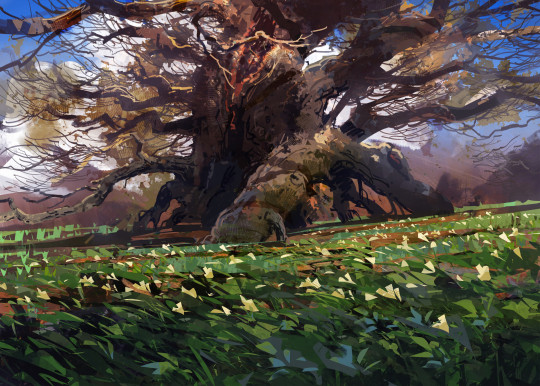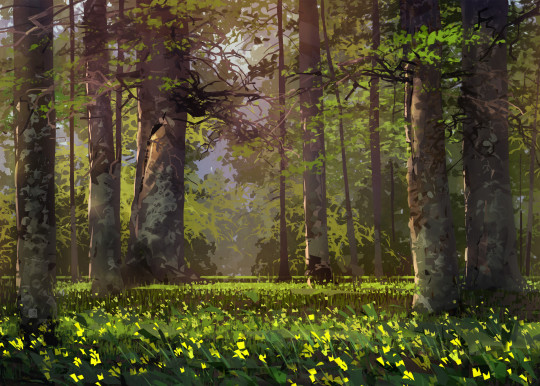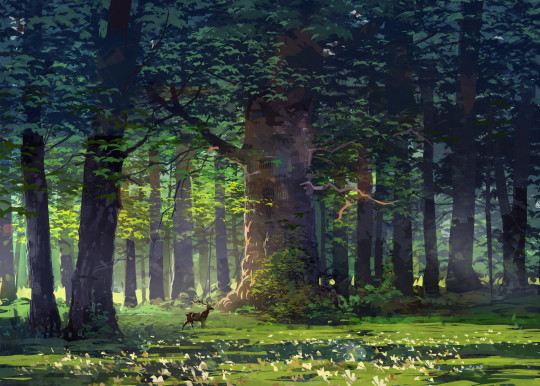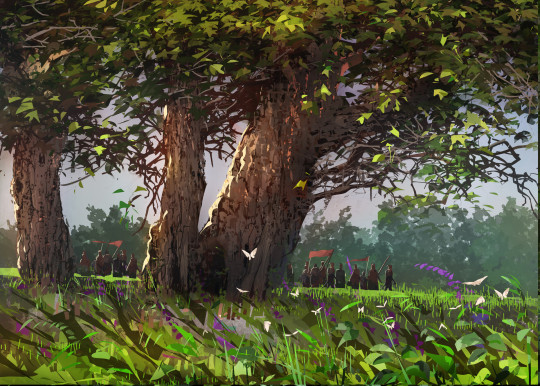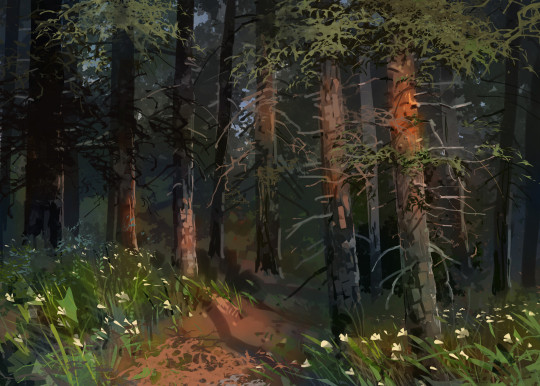Ships and shitposts ♡ german Artist [f], favourite ship: mikototsu - will reblog everything that interests me
Don't wanna be here? Send us removal request.
Text
i hope that in 2025 u get to take more walks, read more books, connect with more people whom u love and who love u, achieve ur goals (even if ur goals are having no goals and just living in the moment), exercise fun hobbies, move from a place of self-direction, and weave together a beguiling assortment of beautiful little moments. remember that no feeling lasts forever. love u
74K notes
·
View notes
Text
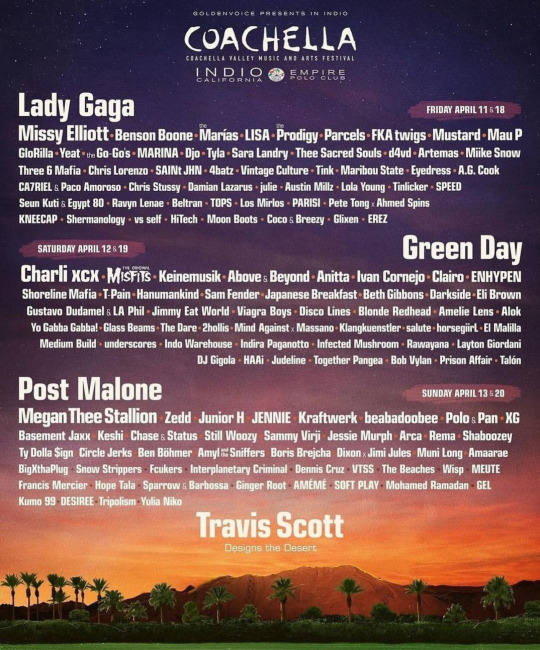
It’s that time of year. Reblog with how many you’ve heard of.
17K notes
·
View notes
Text
every single person you know has something in their life and past that is probably worth collapsing to the ground in an uncontrollably sobbing heap over, so be nice to each other and tell good jokes
982K notes
·
View notes
Text
Wuling vans
English added by me :)
44K notes
·
View notes
Text

an amazing capture of flight trails Photo: Edu Aguilera
14K notes
·
View notes
Text
y'all the sun is so bright today i'm literally melting

#This is the cutest picture#If somebody smiled at ne like that i would probably die#Tianshan#He tian#19days
766 notes
·
View notes
Text
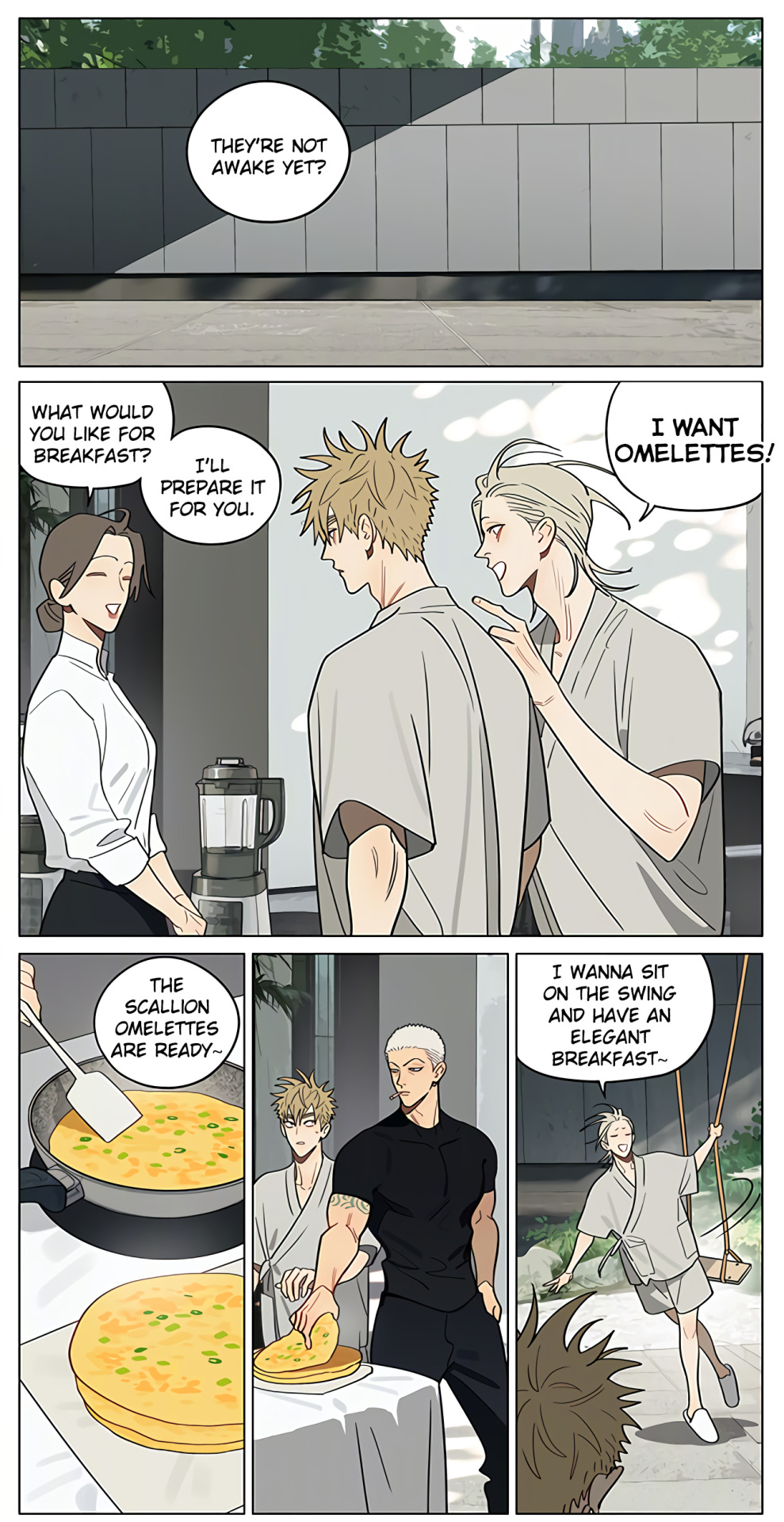
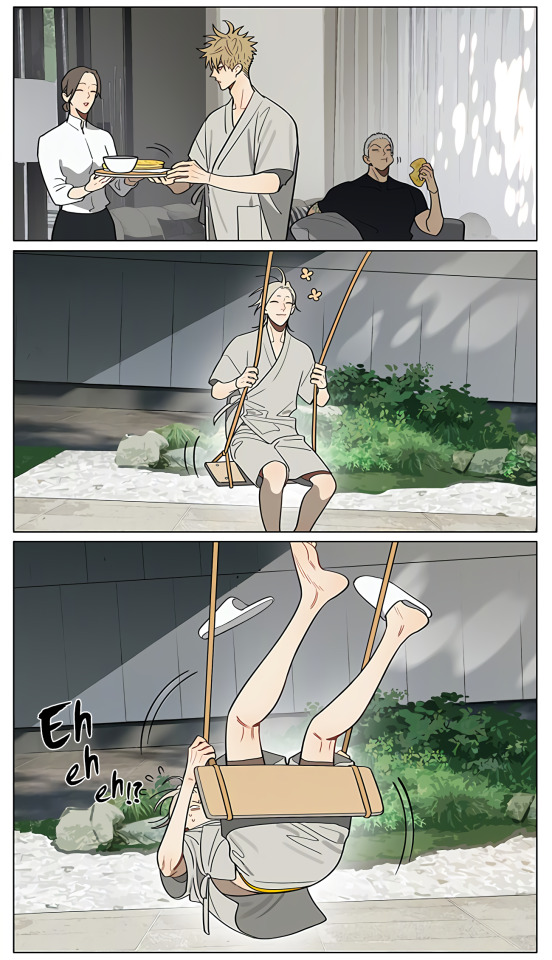
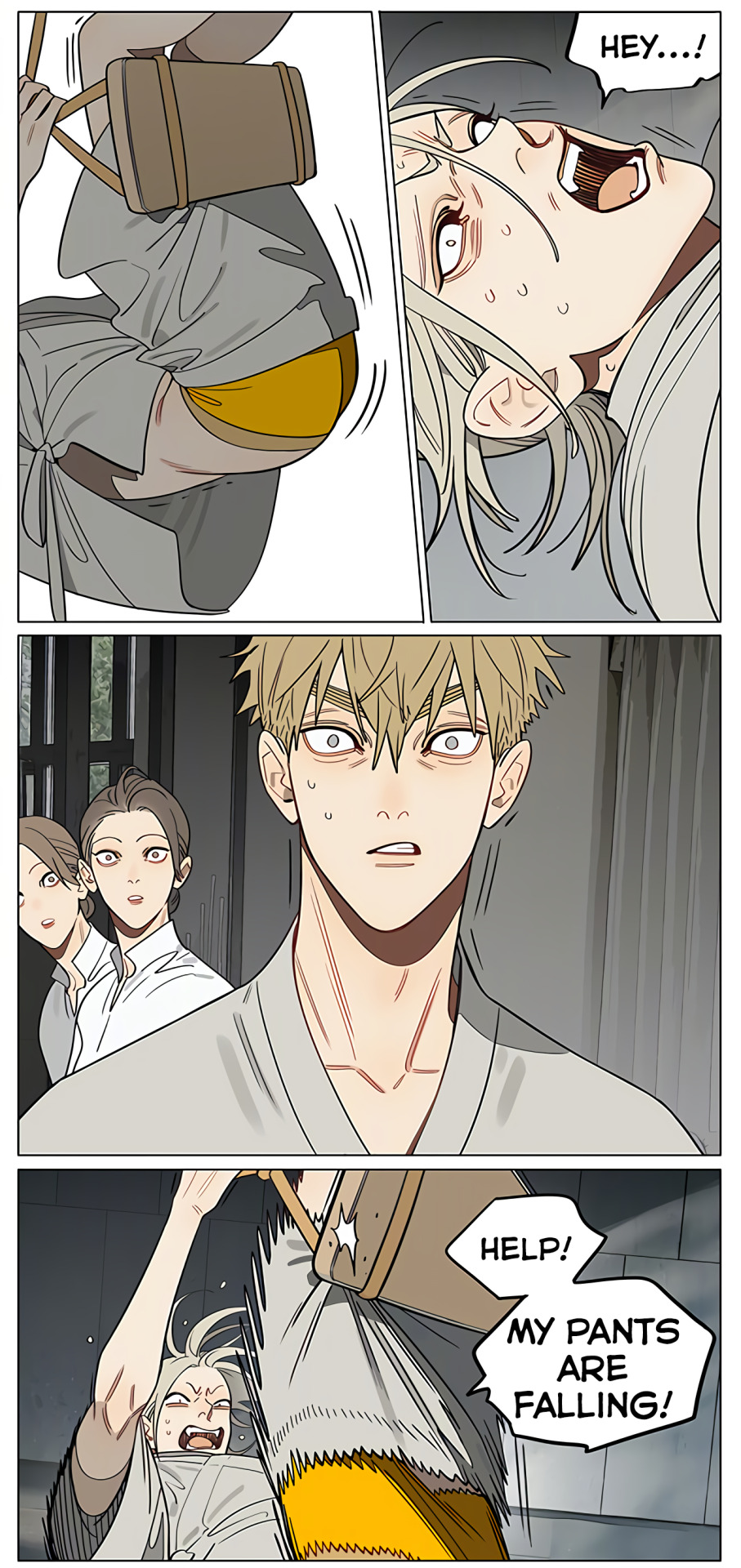


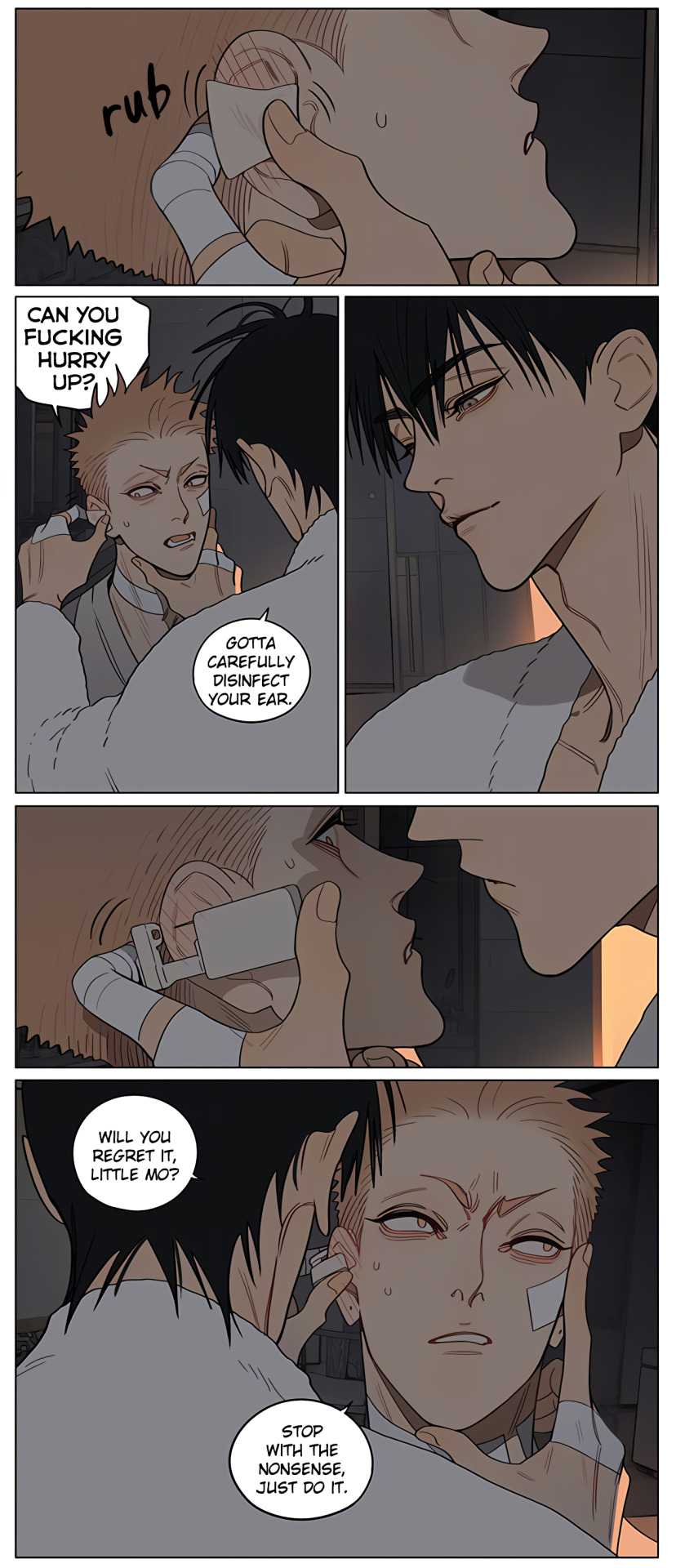
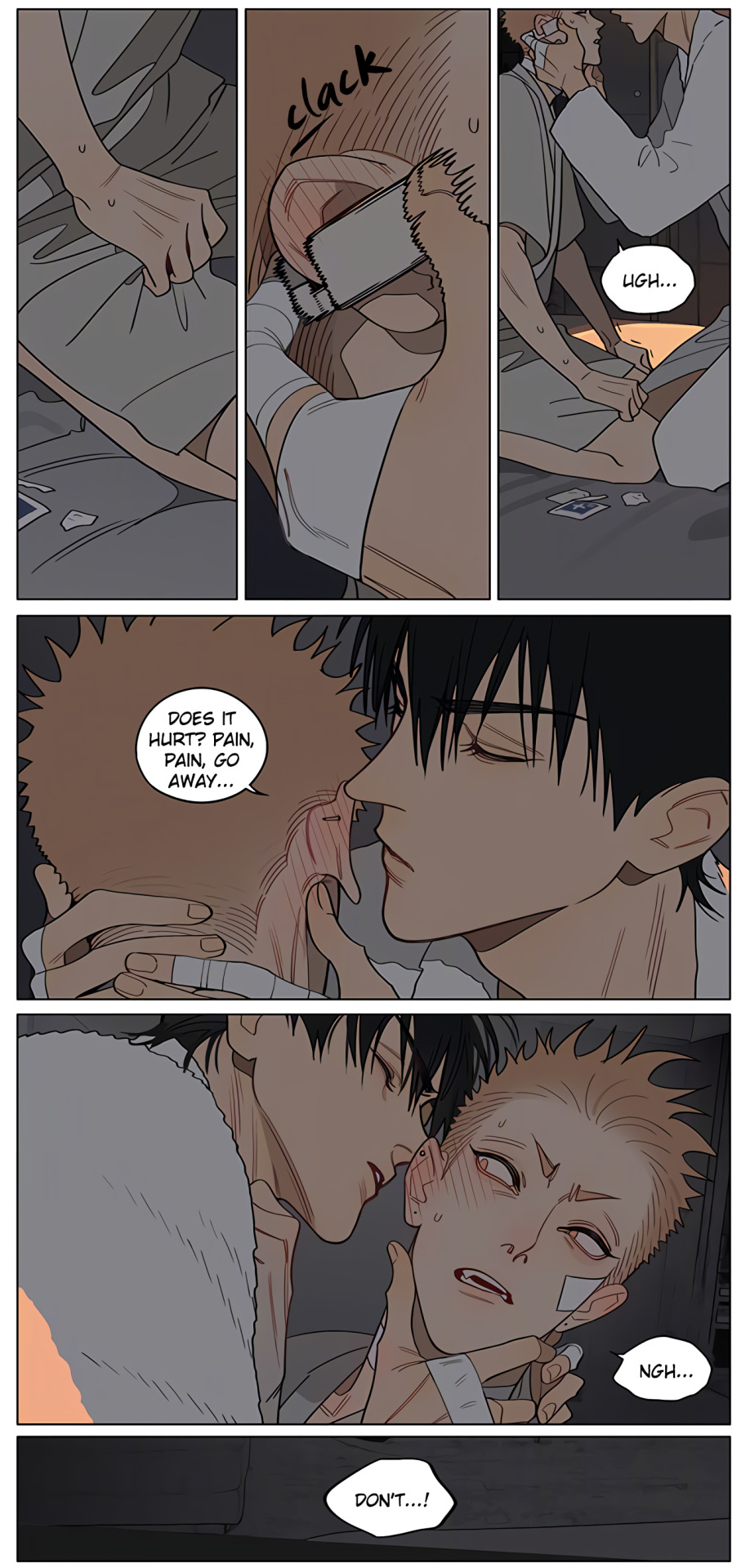

Previous: 382 | 383 | 384 | 385 | extra | 386 | 387 | 388 | 389 | 390 | 391 | 392 | 393 | 394 | 395 | 396 | extra | 397 | 398 | 399 | 400 | 401 | 402 | 403 | 404 | 405 | 406 | 407 | 408 | 409 | 410 | extra | 411 | 412 | 413 | 414 | 415 | 416 | extra | extra | 417 | 418 | 419 | 420 | 421 | 422 | 423 | 424 | 425 | 426 | 427 | 428 | 429 | 430 | 431
Chapter 431: Mark Translator: https://twitter.com/maomaozaii | Editor: https://twitter.com/Lum_Cheng
Please credit maomaozaii on twitter as the translator if you upload it to instagram etc.
2K notes
·
View notes
Text
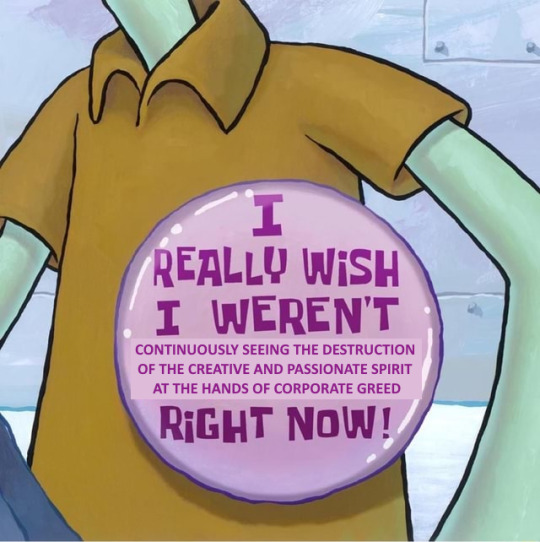
im normal
97K notes
·
View notes
Text
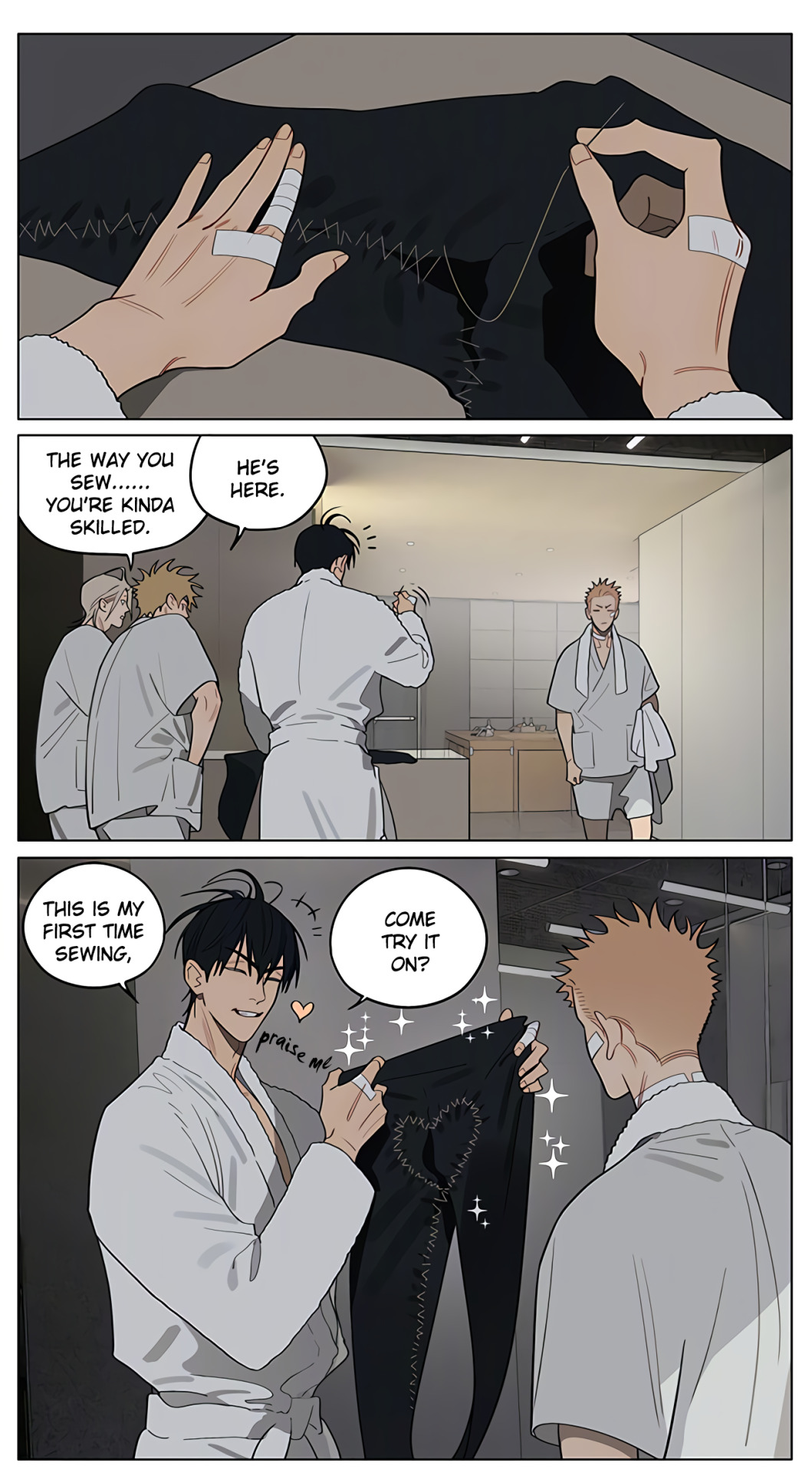
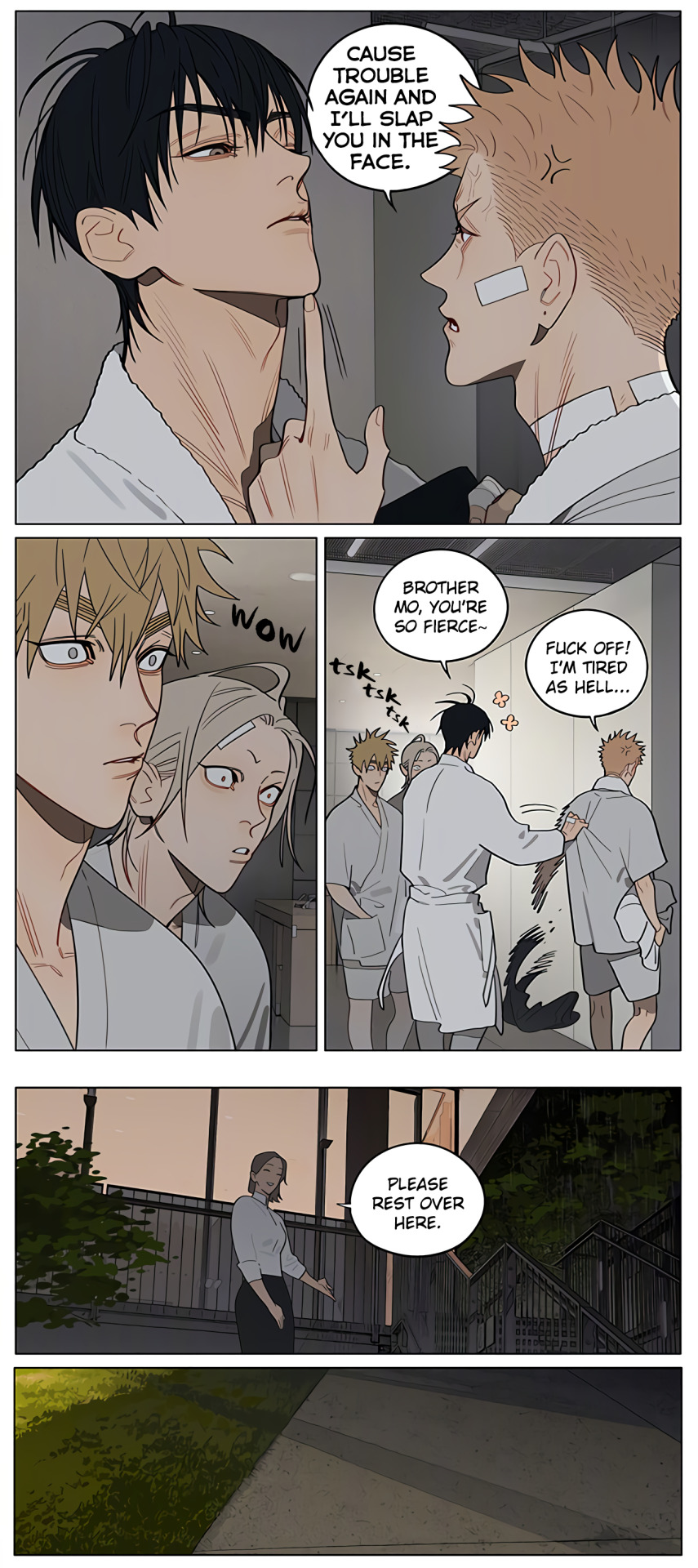
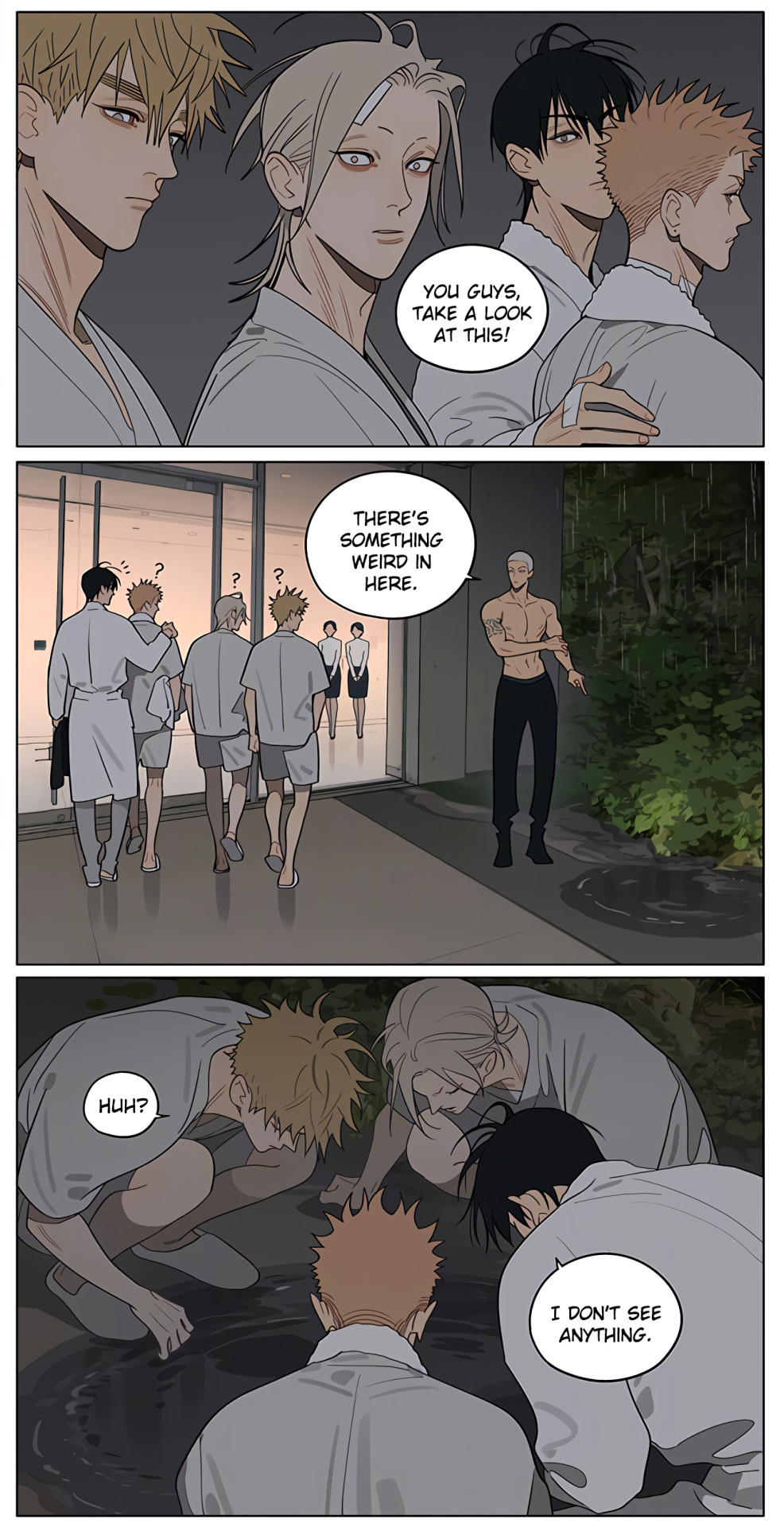


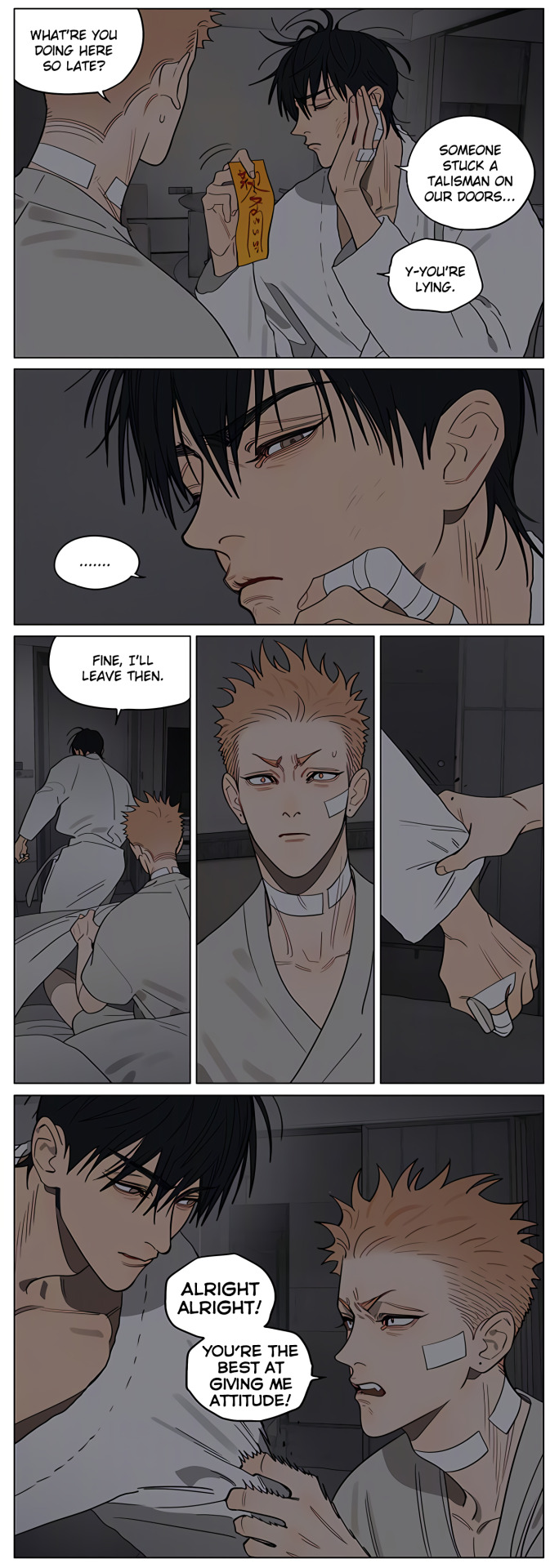
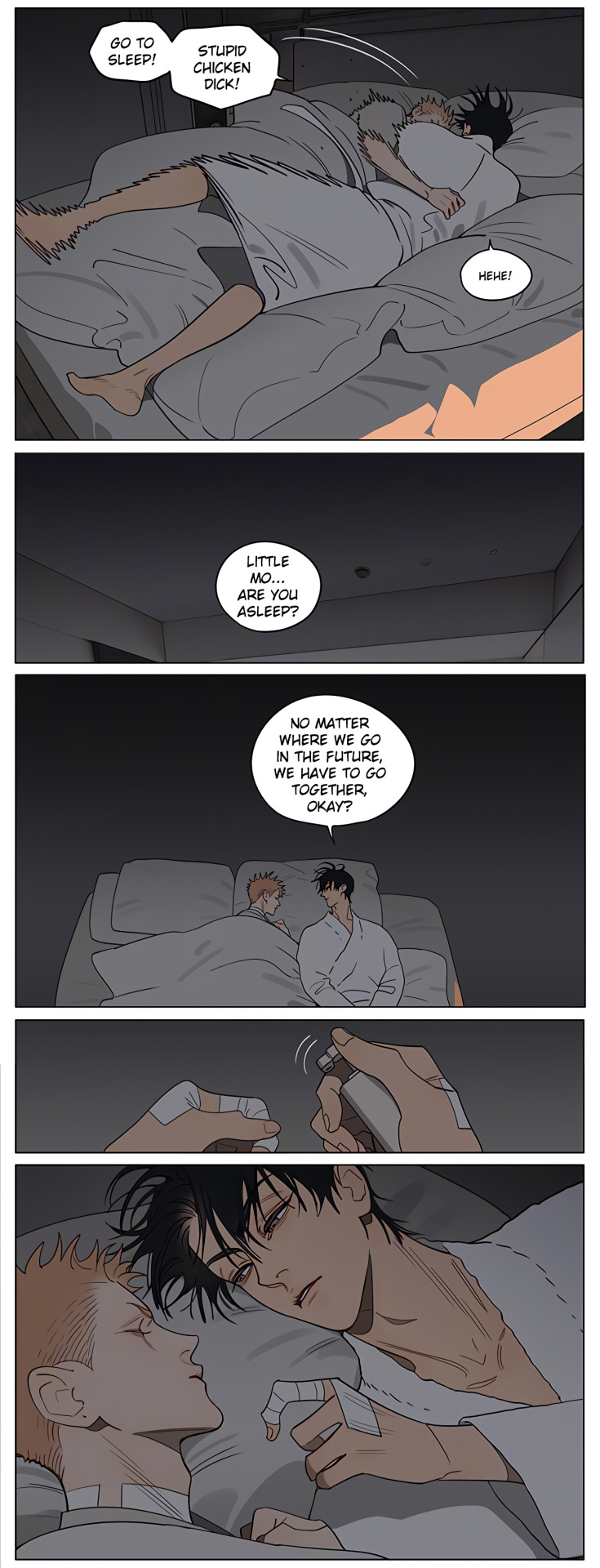

Previous: 382 | 383 | 384 | 385 | extra | 386 | 387 | 388 | 389 | 390 | 391 | 392 | 393 | 394 | 395 | 396 | extra | 397 | 398 | 399 | 400 | 401 | 402 | 403 | 404 | 405 | 406 | 407 | 408 | 409 | 410 | extra | 411 | 412 | 413 | 414 | 415 | 416 | extra | extra | 417 | 418 | 419 | 420 | 421 | 422 | 423 | 424 | 425 | 426 | 427 | 428 | 429 | 430
Chapter 430: Long Night Translator: https://twitter.com/maomaozaii | Editor: https://twitter.com/Lum_Cheng
Please credit maomaozaii on twitter as the translator if you upload it to instagram etc.
2K notes
·
View notes
Text
Sooo hilarious but I can completely see this being a real conversation between streaming execs 😏
(original vid: Asif Ali - instagram - https://tinyurl.com/2p8jpkzz)
#omg I cackled#but also#I wanna shed light on the visuall artists (like digital artist#3-D artists and many more)#we are indeed getting fucked because of stable diffusion#mid journey#and firefly#i feel like not enought people are talking about this
71K notes
·
View notes
Text
I still can't believe He Tian looked at Mos lips intently before than looking up into his eyes, asking, and than going in for the kiss it got the same tension like that one rain scene in pride and prejudice (2005) except with a climax I just aaaaaaaaaaaaahhhhhhhhhh
24 notes
·
View notes
Text
“For some time, Hollywood has marketed family entertainment according to a two-pronged strategy, with cute stuff and kinetic motion for the kids and sly pop-cultural references and tame double entendres for mom and dad. Miyazaki has no interest in such trickery, or in the alternative method, most successfully deployed in Pixar features like Finding Nemo, Toy Story 3 and Inside/Out, of blending silliness with sentimentality.”


“Most films made for children are flashy adventure-comedies. Structurally and tonally, they feel almost exactly like blockbusters made for adults, scrubbed of any potentially offensive material. They aren’t so much made for children as they’re made to be not not for children. It’s perhaps telling that the genre is generally called “Family,” rather than “Children’s.” The films are designed to be pleasing to a broad, age-diverse audience, but they’re not necessarily specially made for young minds.”
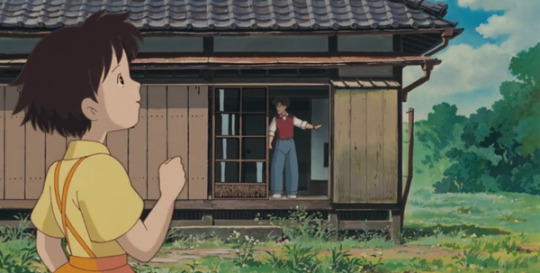
“My Neighbor Totoro, on the other hand, is a genuine children’s film, attuned to child psychology. Satsuki and Mei move and speak like children: they run and romp, giggle and yell. The sibling dynamic is sensitively rendered: Satsuki is eager to impress her parents but sometimes succumbs to silliness, while Mei is Satsuki’s shadow and echo (with an independent streak). But perhaps most uniquely, My Neighbor Totoro follows children’s goals and concerns. Its protagonists aren’t given a mission or a call to adventure - in the absence of a larger drama, they create their own, as children in stable environments do. They play.”
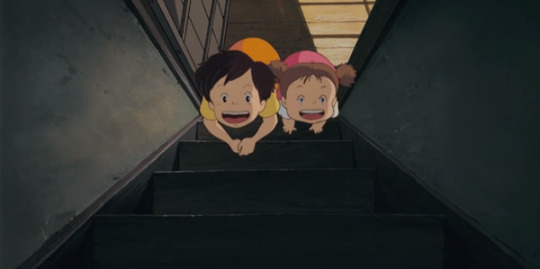
“Consider the sequence just before Mei first encounters Totoro. Satsuki has left for school, and Dad is working from home, so Mei dons a hat and a shoulder bag and tells her father that she’s “off to run some errands” - The film is hers for the next ten minutes, with very little dialogue. She’s seized by ideas, and then abandons them; her goals switch from moment to moment. First she wants to play “flower shop” with her dad, but then she becomes distracted by a pool full of tadpoles. Then, of course, she needs a bucket to catch tadpoles in - but the bucket has a hole in it. And on it goes, but we’re never bored, because Mei is never bored.”

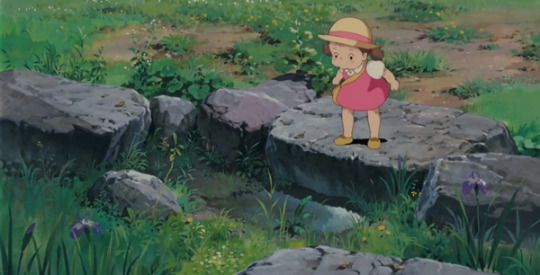
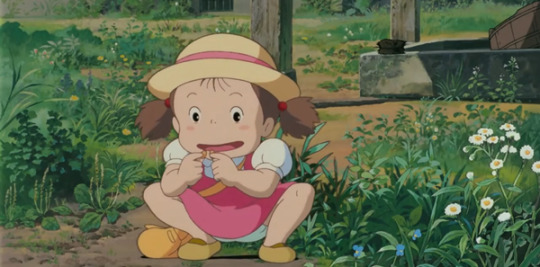

“[…] You can only ride a ride so many times before the thrill wears off. But a child can never exhaust the possibilities of a park or a neighborhood or a forest, and Totoro exists in this mode. The film is made up of travel and transit and exploration, set against lush, evocative landscapes that seem to extend far beyond the frame. We enter the film driving along a dirt road past houses and rice paddies; we follow Mei as she clambers through a thicket and into the forest; we walk home from school with the girls, ducking into a shrine to take shelter from the rain; we run past endless green fields with Satsuki as she searches for Mei. The psychic center of Totoro’s world is an impossibly giant camphor tree covered in moss. The girls climb over it, bow to it as a forest-guardian, and at one point fly high above it, with the help of Totoro. Much like Totoro himself, the tree is enormous and initially intimidating, but ultimately a source of shelter and inspiration.”

“My Neighbor Totoro has a story, but it’s the kind of story that a child might make up, or that a parent might tell as a bedtime story, prodded along by the refrain, “And then what happened?” This kind of whimsicality is actually baked into Miyazaki’s process: he begins animating his films before they’re fully written. Totoro has chase scenes and fantastical creatures, but these are flights of fancy rooted in a familiar world. A big part of being a kid is watching and waiting, and Miyazaki understands this. When Mei catches a glimpse of a small Totoro running under her house, she crouches down and stares into the gap, waiting. Miyazaki holds on this image: we wait with her. Magical things happen, but most of life happens in between those things—and there is a kind of gentle magic, for a child, in seeing those in-betweens brought to life truthfully on screen.”
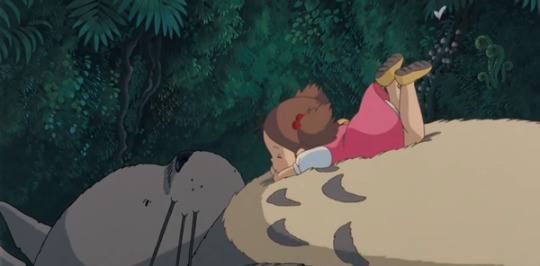
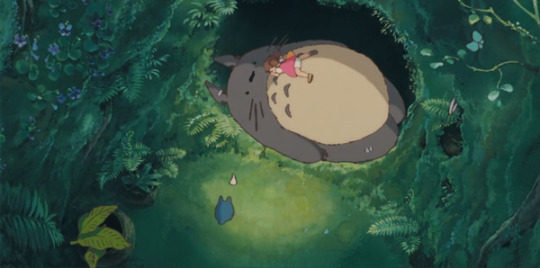
A.O. Scott and Lauren Wilford on “My Neighbor Totoro”, 2017.
90K notes
·
View notes






